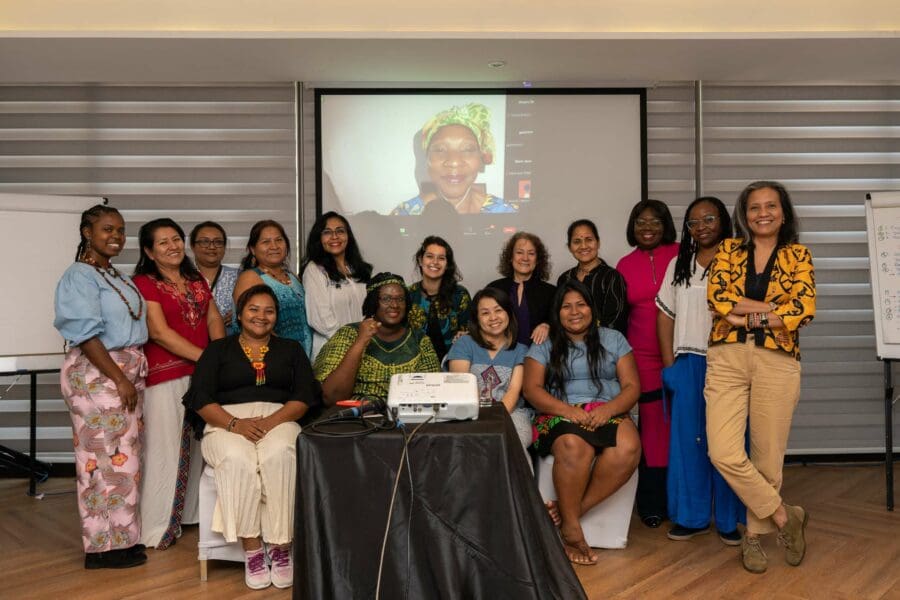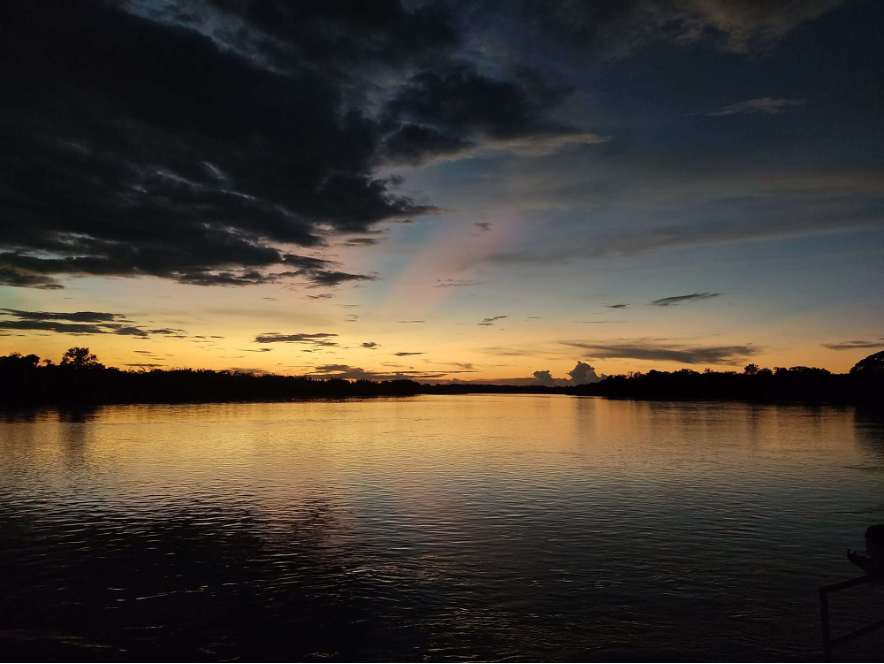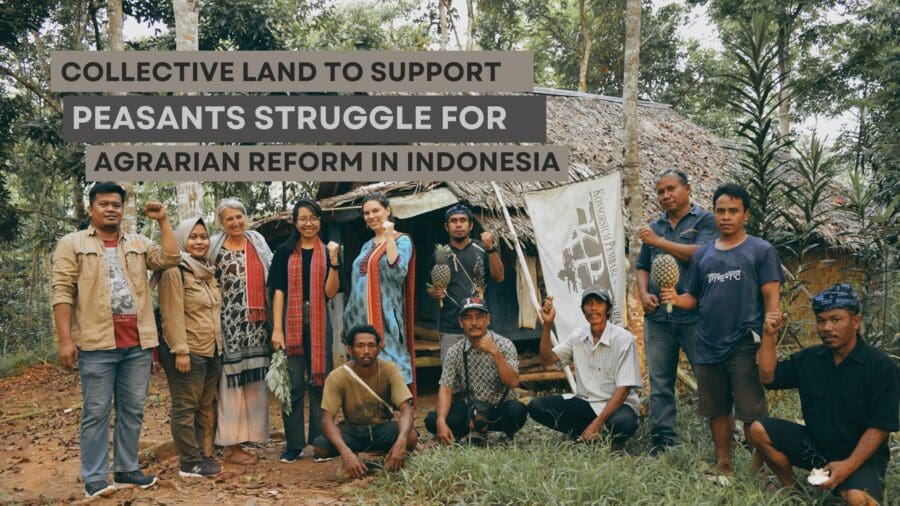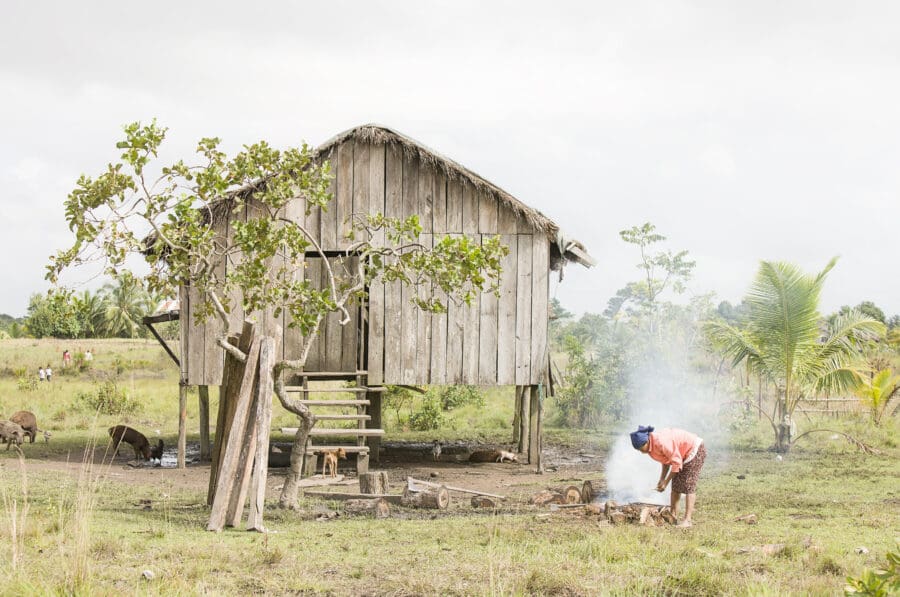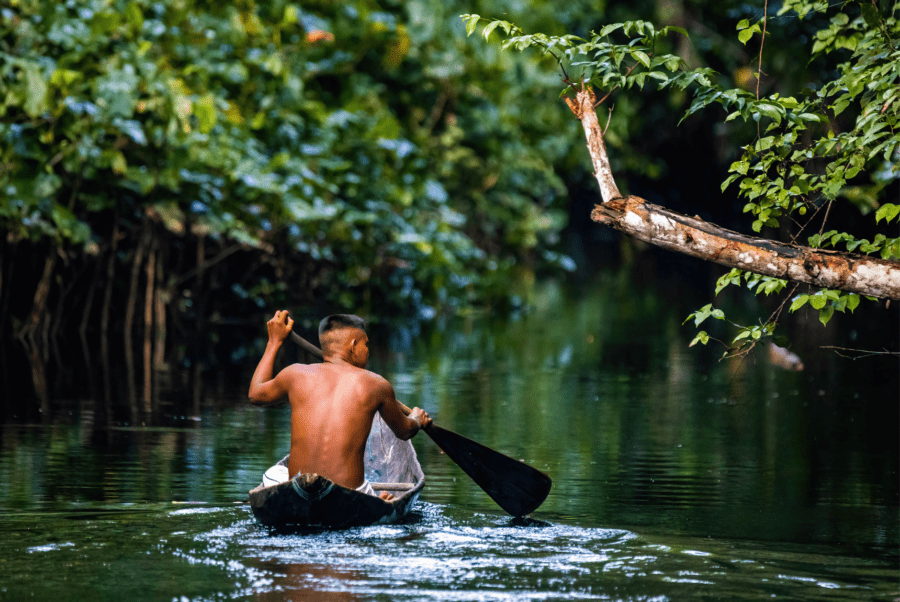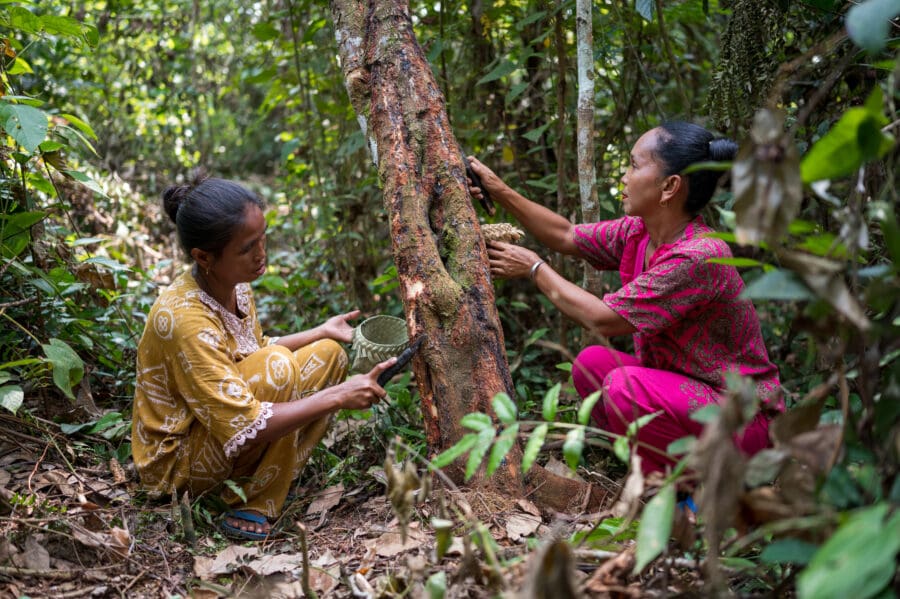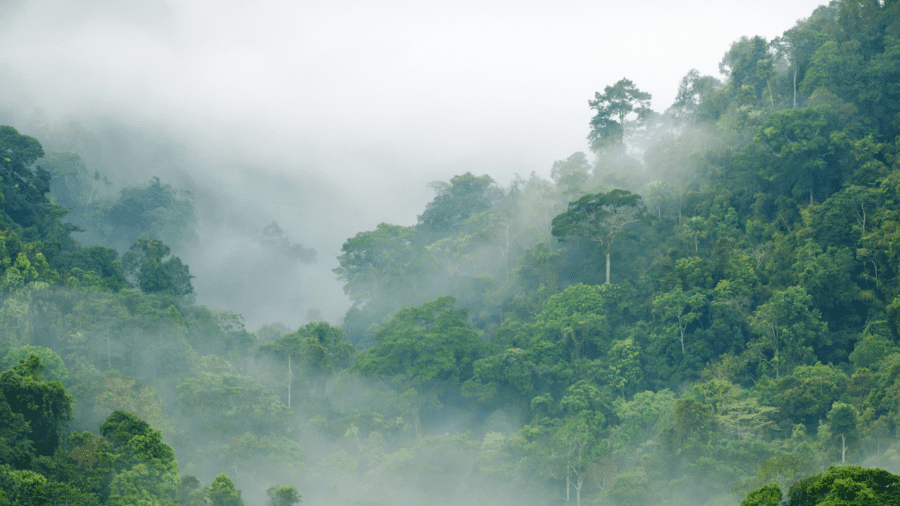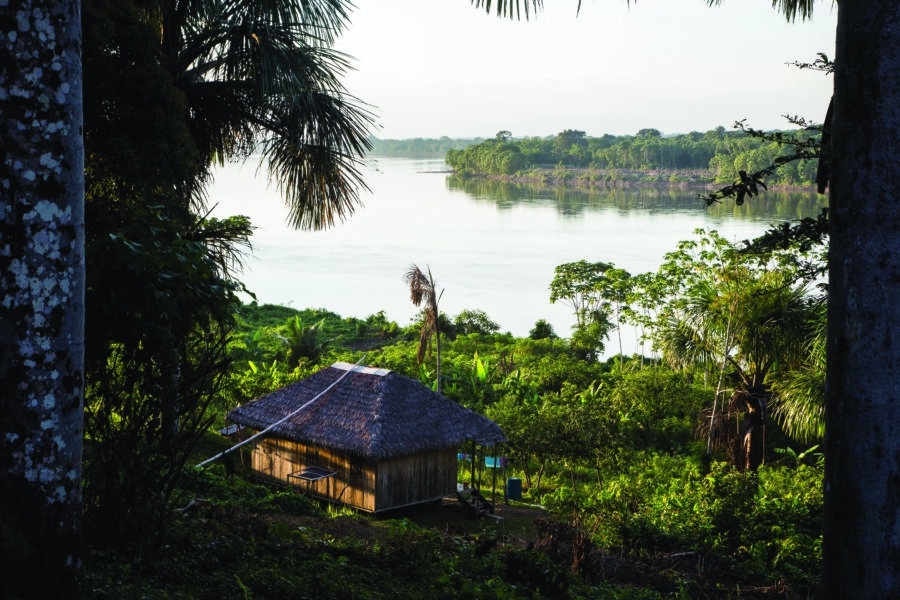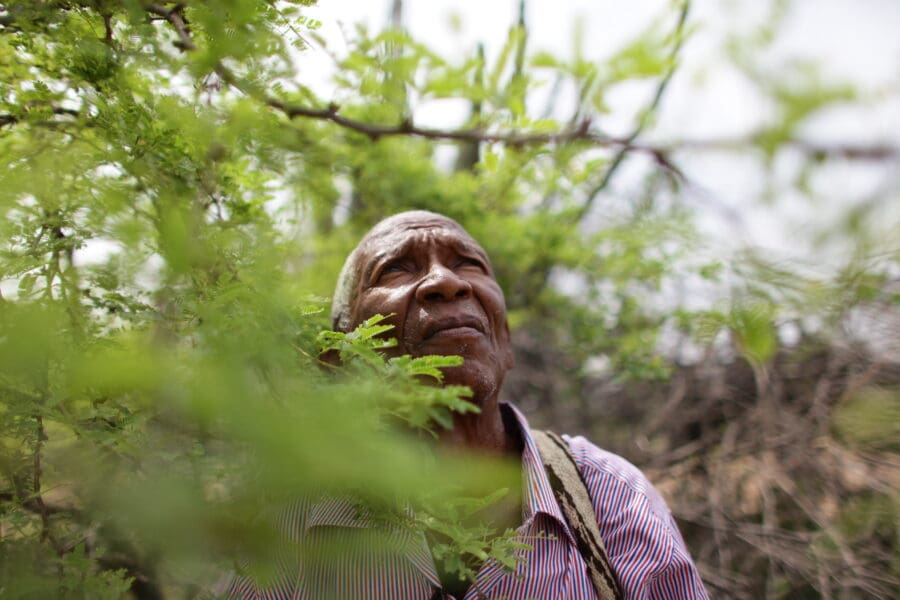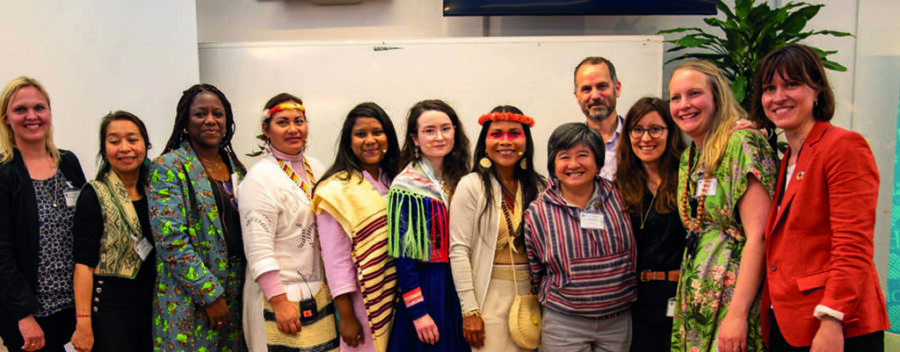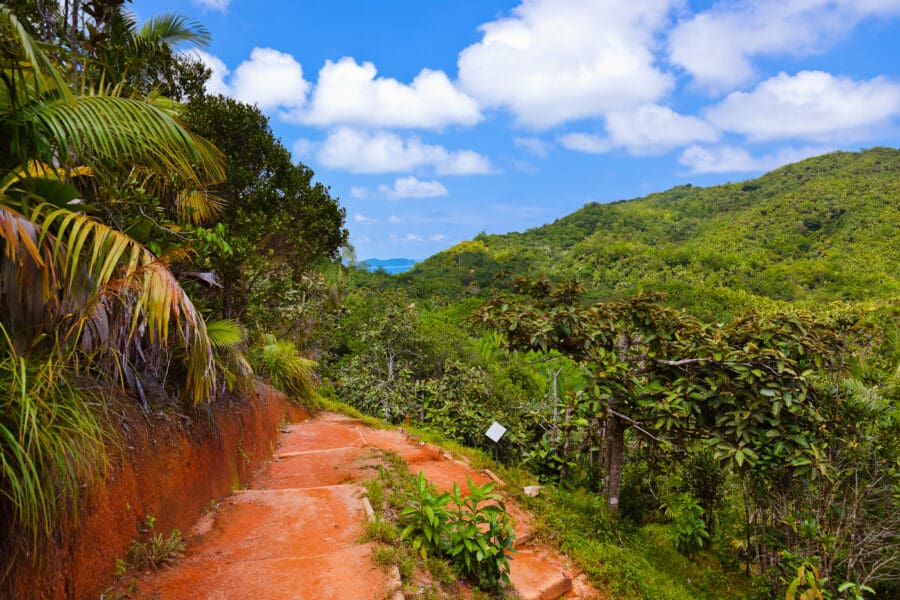Members of the new network agree to create more documentation on land rights and governance processes for Indigenous, Afro-descendant, and local community women; call for strengthening advocacy capacity.
The socio-environmental conflict in Los Pozos inspection of San Vicente del Caguán is unsustainable. The Chinese company, Emerald Energy Plc, repeatedly violates the country's environmental laws and the Colombian government continues to fail to intervene.
P2B, a peasants' organization based in Banten, Indonesia, is a leading actor in the local struggle for agrarian reform and collective land tenure rights.
Nepal's Indigenous Tsum Nubri community achieves a key legislative victory in maintaining traditional methods of forest governance.
RRI marked the beginning of 2023 with a global dialogue on Rights-Based Conservation and Climate Approaches, co-hosted with the Embassy of Sweden in Washington DC.
On the eve of CoP15, Landscape News spoke with Gam Shimray, Secretary-General of the Asia Indigenous Peoples Pact (AIPP) who has been defending and promoting the rights of Indigenous Peoples for almost 30 years. Here, he explicates just how deeply rights, biodiversity and the global future are intertwined.
Indigenous and community leaders from North America and the global South come together to build relations and strengthen a global solidarity movement around Indigenous and community-led responses to the global biodiversity and climate crises.
On December 6, RRI, the Conservation through Reconciliation Partnership (CRP), and the ICCA Consortium—in partnership with the Canadian Research Chair in Human Rights, Health, and the Environment, Montreal International and the Christensen Fund—will co-host a pre-COP15 dialogue on Indigenous and community leadership in conservation.
This keynote address was shared in person on July 21, 2022 at the IUCN Africa Protected Areas Congress in Kigali, Rwanda. Patrick calls on governments to leverage the cultural diversity of Africa to craft new conservation models that legally recognize and secure the tenure rights of Indigenous Peoples and local communities as a just and viable solution to the global biodiversity crisis.
President Félix Antoine Tshisekedi of the Democratic Republic of the Congo (DRC) has signed a historic bill to protect and promote the rights of Indigenous Pygmy Peoples into law. This is the first-ever legislation in the country to recognize and safeguard the specific rights of Indigenous Peoples.
November 14 marks Gender Day and Water Day at CoP27 in Sharm-El-Sheikh, Egypt. We must take a moment to recognize how Indigenous, Afro-descendant, and local community women and girls are leaders in climate change mitigation and adaptation and integral to attaining the UN's 2030 Sustainable Development Agenda.
On November 11 at CoP27, 41 grassroots women’s organizations from Asia, Africa, and Latin America launched a new advocacy network called the Women in Global South Alliance for Tenure and Climate.
RRI is excited to announce the launch of its new online Tenure Tool. This platform, hosted on RRI’s website, will give rightsholders, researchers, activists, policymakers, and the public free and easy access to qualitative and quantitative data on the forest tenure rights of Indigenous Peoples, Afro-descendant Peoples, local communities, and the women within those communities.
At CoP26 in Glasgow, 22 donors made a historic commitment to contribute $1.7 billion to support Indigenous Peoples’ and local communities’ rights to their lands and forests. Almost one year later, questions abound over the Pledge’s disbursement, impact, and accessibility.
This analysis highlights the urgent need to work on a rights-based approach to conservation in the Colombian and Peruvian Amazon considering the multiple collective rights of Indigenous Peoples and Afro-descendant Peoples. The study proposes a roadmap to transform, strengthen and expand existing conservation legal frameworks.
In this new report, researchers compiled data on this funding stream and assessed the grants along different dimensions of “Fit for Purpose” criteria—determining whether the funding achieved its intended goals or was compromised in delivery and effectiveness.
Following more than three years of investigation into the armed conflict in Colombia, the Truth Commission, which was created by the signing of the peace agreement between the government and the Revolutionary Armed Forces of Colombia (FARC) in 2016, published the first chapter of its final report on June 28, 2022. This blog post looks at some of its key findings and testimonies.
This July, an RRI delegation participated in the first-ever IUCN Africa Protected Areas Congress (APAC) in Rwanda and included Indigenous and community leaders from the Republic of Congo, the DRC, Liberia, Cameroon, and Kenya. APAC marked a crucial moment in shaping Africa’s conservation agenda and culminated in the Kigali Call to Action. This is our delegation’s response to this Call.
The Stockholm+50 associated event aimed to highlight the role and importance of Indigenous peoples and local communities in safeguarding the world’s forests, ecosystems, and biodiversity. The event was one of three collaborative events held on June 1st at Sida ahead ofStockholm+50, co-arranged by Sida, The Tenure Facility, SwedBio, The Rights and Resource Initiative, and the Focali – SIANI Dialogue Forum.
Rights and Resources Initiative (RRI) and the Chepkitale Indigenous Peoples' Development Project (CIPDP) organized a site visit to Chepkitale to learn from the Ogiek of Mt. Elgon and shine light on the transformative role of community-led conservation in protecting Kenya's biodiversity-rich forests.
When members of the Indonesia-based AsM Law Office landed in Monrovia, Liberia this June, they had a two-fold agenda for their two week exchange with leaders of Liberian civil society.
Rights and Resources Initiative expresses its solidarity with the leaders of the Indigenous rights movement in Ecuador who are being criminalized for exercising their legitimate right to mobilize and defend their human rights.
Long-time RRI collaborator Social Entrepreneurs for Sustainable Development (SESDev) examines how Liberia’s Land Rights Law has impacted women’s land rights and livelihoods since 2018.
A new study led by biologists at University of Amsterdam shows that the minimum land area requiring urgent conservation attention to safeguard Earth’s biodiversity is 64 million square km, equalling 44% of the planet’s terrestrial area.

